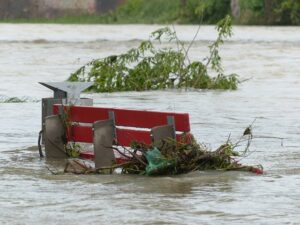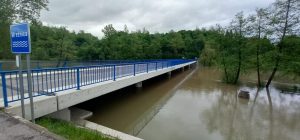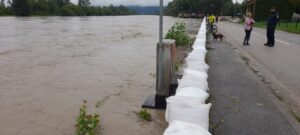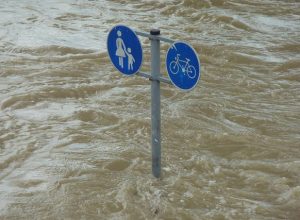Floods and their impact on the quality of water for human consumption
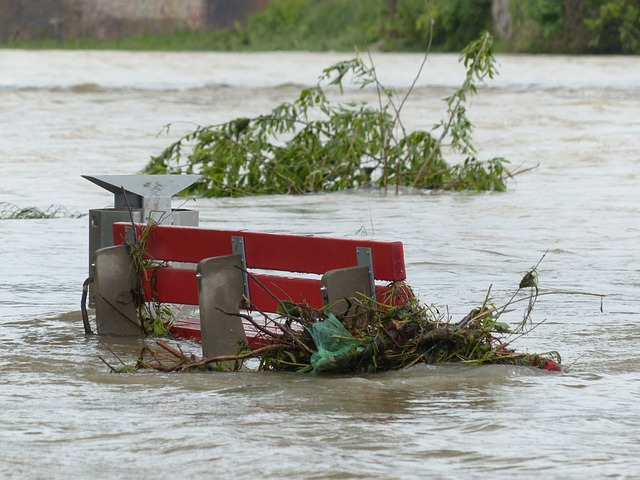

The Josip Juraj Strossmayer Water Institute carries out, among other things, research monitoring of water for human consumption.
Floods, often caused by significant and rapid fluctuations in runoff and strong erosive forces, as well as the transport of sediments by torrential waters, trigger landslides, erode soils and riverbanks, causing their collapse and changes in the landscape. At the same time, the floods carry material from eroded banks, which is often suspended sediment that can be contaminated with various organic and inorganic pollutants such as pesticides and herbicides, metals, nutrients, industrial chemicals, pharmaceuticals, endocrine disrupting compounds, microplastics and other persistent pollutants.
In addition, flooding can also be a cause of infectious disease outbreaks as it increases the likelihood of the spread of waterborne diseases such as hepatitis A, cholera and leptospirosis. Despite all the negative impacts, seasonal flooding can also have some positive effects on biodiversity, such as restoring ecosystems, stimulating reproduction, migration and the spread of certain native species.
In Croatia, a significant part of the water used for human consumption comes from groundwater sources. The connection between surface water and groundwater can also be exposed to the effects of flooding. The area where surface and groundwater mix (the transition zone) plays an important role in changing water quality in both ecosystems. This zone is biologically and chemically very active due to a number of hydrogeochemical processes related to the transport, degradation, transformation, deposition and sorption of various substances.
To mitigate the negative effects of flooding on water quality, it is essential to adopt appropriate water and environmental management measures as part of an integrated approach which includes prevention measures (urban planning with adequate green spaces) and measures to reduce the damage caused by flooding (preservation of natural protective barriers such as wetlands and forests, known as nature-based solutions, application of agricultural practises that reduce soil erosion, control and reduction of pesticide use in agriculture, proper waste disposal and regulation of industrial facilities).
Systematic monitoring, not only of legally regulated substances but also of related compounds in surface water, groundwater and drinking water, is extremely important to determine the actual state of water, recognise various environmental changes in time and prevent potential harm to humans and the environment.
